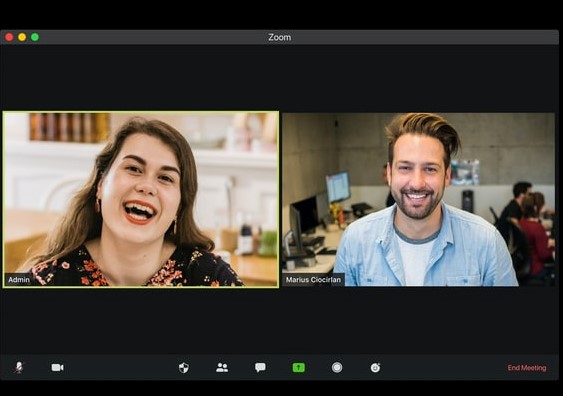When it comes to video conferencing, the phrase “needs must” springs to mind right now. Remote working has become a necessity over the last 2 months, an essential part of the Covid-19 age, but are the cracks beginning to show?! We may be able to continue to function in a working capacity but some of the challenges with remote working – and in particular with video conferencing – are starting to wear thin. It may be getting us through the crisis but video conferencing isn’t going to rule the world once it’s over. Life goes on around us every day and while we may be more tolerant of interruptions from children or buffering sound than we were before Covid-19, the frustrations around video conferencing most likely mean they won’t entirely replace face to face meetings (when we’re able to do so again in the future).
What are those frustrations?! Here are a few:
Quality control
The surge in online meetings has seen services like Zoom come into their own – so much so, that Zoom has become the Google of search engines, or the Hoover of vacuum cleaning. But no matter how important they’ve become, they don’t always offer a seamless service. From freezing screens to people dropping out altogether, there are a number of pitfalls with video conferencing – not to mention that humans are essentially social beings that need to personally interact with each other – which mean it’s unlikely they’ll ever replace meetings that happen face to face.
User error
“The one where Welsh MP Vaughan Gething was caught out swearing about Jenny Rathbone after not muting his microphone”. And there are a number of other examples here: from being set up in a less than conducive environment with poor lighting or excessive outdoor noise, to problems with echoes on the call if people have computer or telephone speakers located too close to each other. These issues can affect the quality of the session and cause frustration for those people having to sit through an inferior meeting.
Poor network connection
We’ve all been there: the screen has frozen and the meeting stalls as attempts are made to try get the person back again. Then it happens again. So the decision is made to carry on… again this results in a disappointing meeting. The person who was unable to attend has missed out on what the others have said but equally, the others have missed out on any valuable contribution the missing person could have made.
Satisfactory security
This is where the aforementioned Zoom didn’t perform well, certainly not in the immediate weeks when remote working began. In fact they were forced to apologise for and rectify major concerns around security and privacy issues. They subsequently released security updates to increase privacy.
Perhaps the answer is this: rather than replacing in-person meetings, video conferencing has a place that runs alongside them. If just a certain percentage of meetings were taken online and people didn’t need to travel from various destinations, just think of the benefits – from reducing the environmental impact to cost savings and even improving work/life balance by reducing the time spent on travel.
We firmly believe that transcription has an important role to play in providing a record of a meeting – both face to face and from either a sound or video recording. This applies not just to using transcription to minimise the impact of Covdi-19 on business as the country fights the war on the virus, it can be just as vital in peacetime. When we saw this Tweet in April by Graham Cowie, a House of Commons Clerk, it really resonated with us: For many of our clients, we are the “Hansard” of their business. As the official transcribers to Parliament, Hansard plays a vital role in providing a record of exactly what has happened in a parliamentary session. Like Hansard, we don’t leave anything to chance. We always take the time to go over recordings & make sense of a meeting for our clients. This record can be called upon at any time to clarify what has been discussed – and this week Ed Davey, leader of the Liberal Democrats, even requested that Boris Johnson has been asked to clarify a point debated about the coronavirus to ensure that Hansard is clarified so that it is accurate for the future.
For many of our clients, we are the “Hansard” of their business. As the official transcribers to Parliament, Hansard plays a vital role in providing a record of exactly what has happened in a parliamentary session. Like Hansard, we don’t leave anything to chance. We always take the time to go over recordings & make sense of a meeting for our clients. This record can be called upon at any time to clarify what has been discussed – and this week Ed Davey, leader of the Liberal Democrats, even requested that Boris Johnson has been asked to clarify a point debated about the coronavirus to ensure that Hansard is clarified so that it is accurate for the future.
To find out more about how FSTL can help support your business with professional quality transcription, email alex@fionashipley.com.

